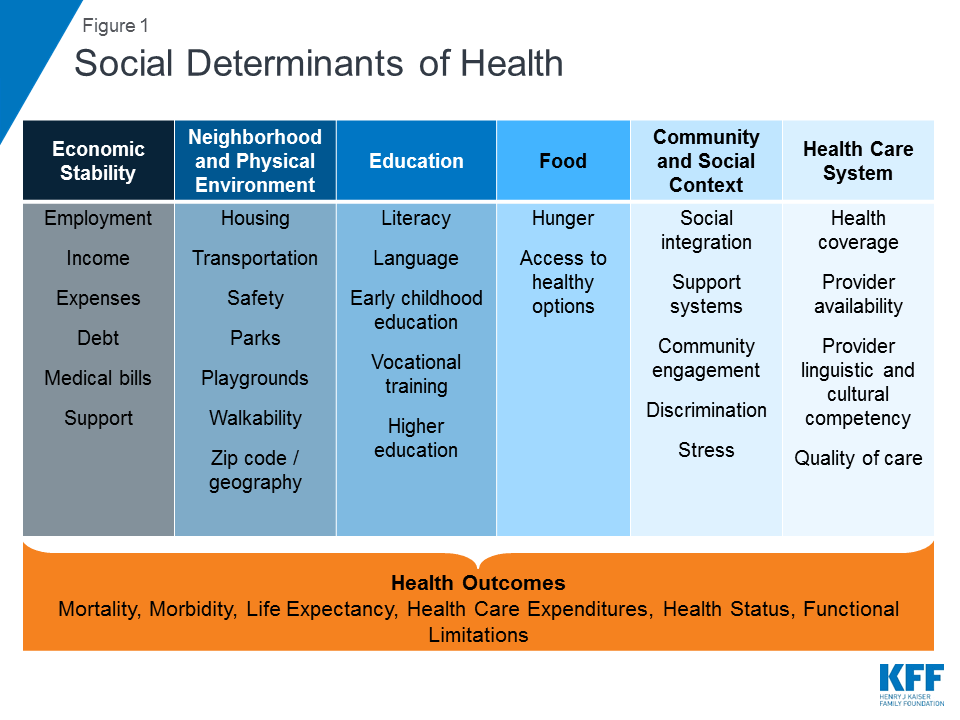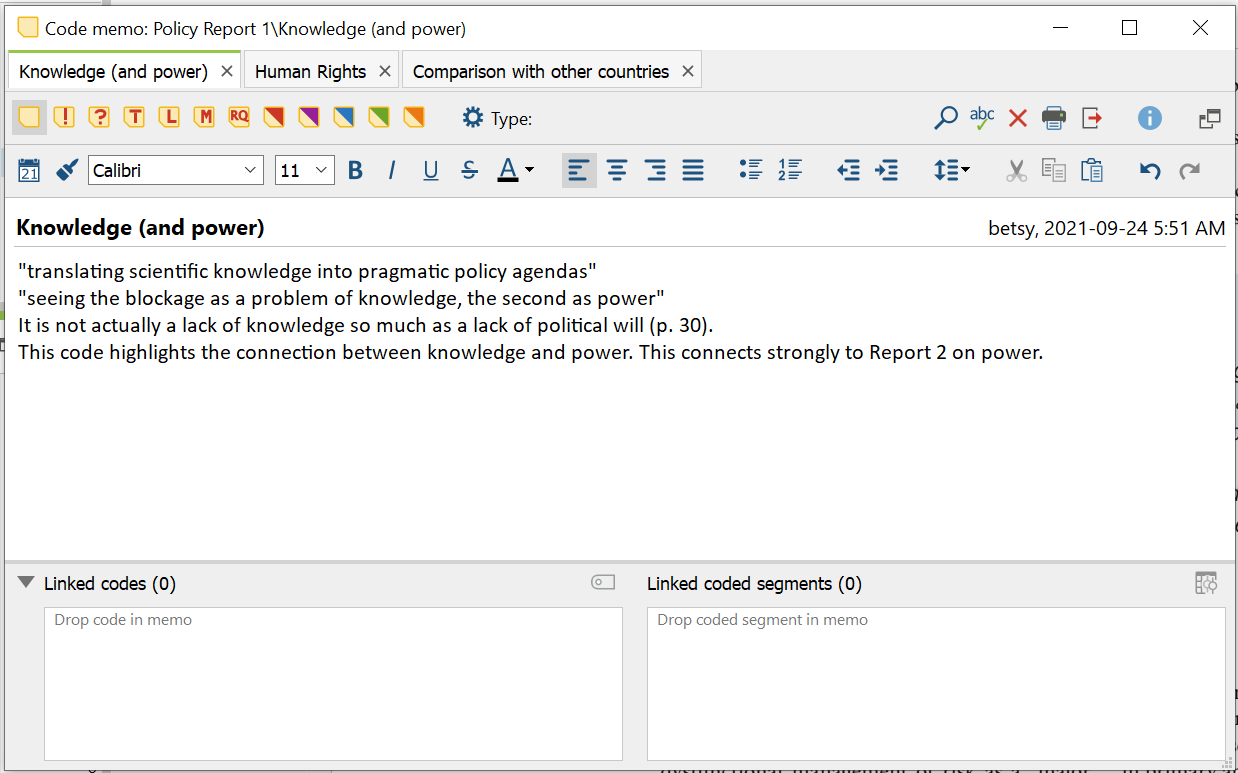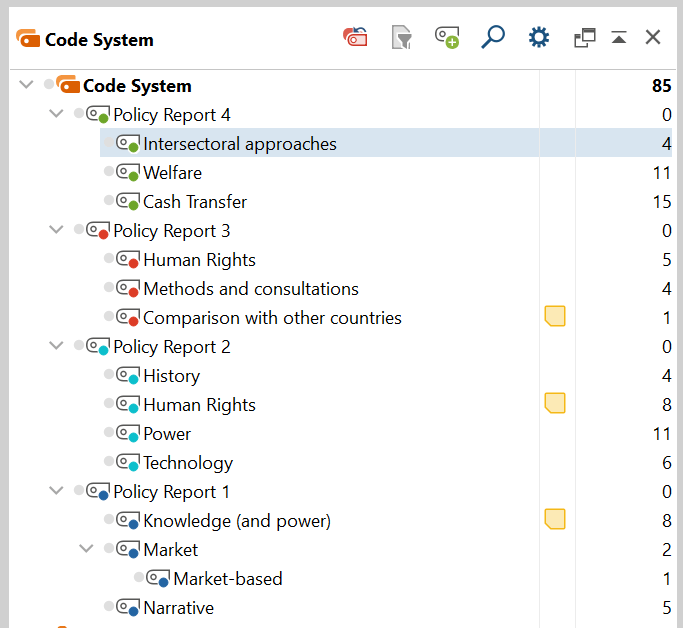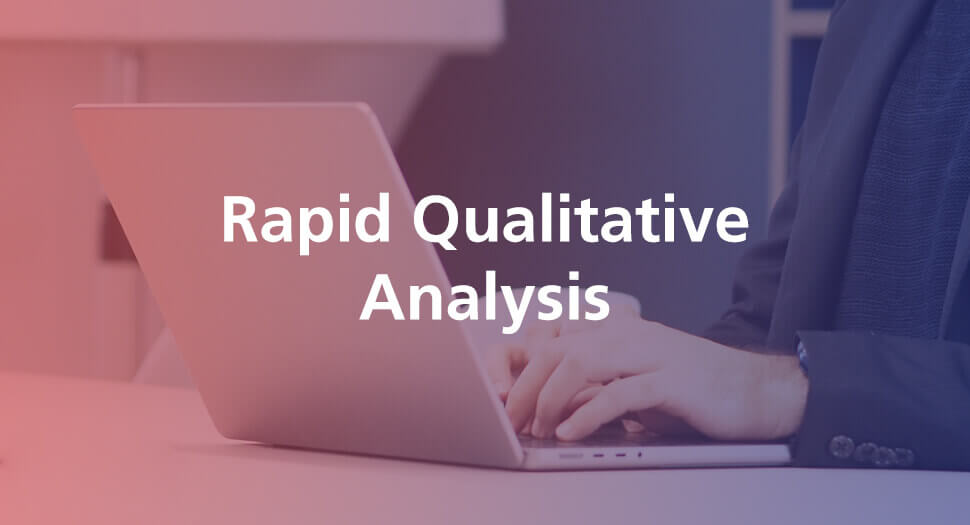We often think of health in medical terms, but it is also politically and socially determined. Health relates to education, housing, employment, neighbourhoods, access to care, and much more. Social determinants of health are important, but aren’t always concretely defined. MAXQDA can help identify key themes.
This post is particularly aimed at any MA/Ph.D. student beginning to learn to use software to code policy documents; the process can be daunting at first. The purpose of this post is to walk readers through the process in which I systematically organized, coded, and then re-coded documents to highlight key themes. A later blog post will illustrate how the Code Matrix Browser can then be used with these codes for further analysis.
Background
This project analyzes ‘social determinants of health’ (SDH), using MAXQDA functions to understand a central tenet of public health policy. This blog post is adapted from a conference paper delivered at the 2021 International Studies Association (ISA) conference, where I asked the following research questions: How have SDH been discussed in global as well as in U.S. federal discourses? Why have SDH as a concept been largely absent from elite federal political discourse on health policy, which tends to focus on agenda policy issues? To answer these questions, I analyzed WHO policy papers and combined this with an analysis of presidential discourses on health. For this blog post, I focus on the MAXQDA functions I used for the public reports.
What are Social and Political Determinants of Health?
SDH as well as political determinants of health (PDH) are very important, but also very broad concepts in and of themselves. SDH are often referred to as “the conditions in which people are born, grow, live, work and age,” and which impact overall health and well-being (WHO, 2021). PDH encompass how “different power constellations, institutions, processes, interests, and ideological positions affect health within different political systems and cultures and at different levels of governance” (Kickbusch, 2015). In other words, this broad framework allows us to think about health beyond health policy: Health is not just medical, it is also political and social. Health relates to education, housing, neighbourhoods, access to care, and much more. Social and political determinants of health have gained attention in recent years (Artiga & Hinton, 2018; Dawes, 2020).
 (source: Artiga & Hinton, 2018, retrieved from: https://www.kff.org/racial-equity-and-health-policy/issue-brief/beyond-health-care-the-role-of-social-determinants-in-promoting-health-and-health-equity/ )
(source: Artiga & Hinton, 2018, retrieved from: https://www.kff.org/racial-equity-and-health-policy/issue-brief/beyond-health-care-the-role-of-social-determinants-in-promoting-health-and-health-equity/ )
Oftentimes, SDH are discussed in tandem with health equity. SDH are not always concretely defined and remain a very vast, loose concept with multiple different definitions and interpretations, which can pose issues (See Raphael 2011, Table 1: Various conceptualization of the SDH).
Specific MAXQDA functions used
My paper examined discourse around SDH and analyzes WHO policy papers for their main discourses, suggesting a preliminary framework for comparing and contrasting national government discourses. MAXQDA was used for
1) creating sets (organizing a literature review and documents to code by using sets)
2) coding (coding the policy reports) both in-Vivo and with new codes
3) memo function (writing memos for certain codes)
Starting the project
My research is concerned with the intersection between policy studies and public health. I began this project with the question: How are social determinants of health (SDH) understood at the global level? How are they understood at the federal level in the U.S.? This research developed following years of health policy analysis at the federal level in the United States, which led to SDH research and interest in innovative, qualitative, and mixed methodological approaches.
The goal was to understand what SDH means in high-level international policy documents. At the same time, the project opened the door for further study on gaps in discourse between different countries and the WHO. Why have some countries adopted a social determinants of health framework? Why have some not adopted this framework? Could this have anything to do with a lack of clarity or agreements on definitions of SDH?
The starting point was to conduct a literature review, and then decide on policy papers to analyze for how the WHO conceptualizes or discusses SDH in public reports and documents.
Research methods
I used a qualitative approach rooted in interpretive policy analysis (Browne et al, 2018). Previous, relevant scholarship on health inequalities from a comparative political science approach also includes Lynch’s (2019) gathering of policy documents on health inequality, coding them for a variety of frames, including how problems were framed. Applying a similar approach, I analyzed discourses in the four WHO policy documents on social determinants of health.
First, the documents were downloaded from the WHO website on social determinants to health and organized into a set. Secondly, I read through the policy papers, inductively coding for key themes. Third, I conducted another round of coding, where I coded many of these themes in-vivo.
Analysis methodologies
A qualitative content analysis was conducted to assess how the WHO discusses SDH in these four reports – the discourses, themes, or concepts that emerge inductively. The table below describes the first round of inductive coding for themes and discourses.
Policy document type | Specific document analyzed | Themes or discourses |
WHO reports | 1. Action on the Social Determinants of Health: Learning from previous experiences. Social Determinants of Health Discussion Paper 1 Geneva 2010. (World Health Organization, 2010c) | -Narratives -Market-based approaches -Knowledge/Power |
2. A Conceptual Framework for Action on the Social Determinants of Health. Social Determinants of Health Discussion Paper 2.Geneva 2010. (World Health Organization, 2010a) | -Technology-based solutions -History of SDH -Equity/Human rights -Power | |
3. Monitoring social well-being to support policies on the social determinants of health: the case of New Zealand’s “social reports/te pūrongo oranga tangata” Social Determinants of Health Discussion Paper 3 (Pega et al., 2010) | -Comparisons with other countries -Methods and consultations (solutions) -Rights/right to health | |
4. Public Health agencies and cash transfer Programmes: making the case for greater involvement. Social Determinants of Health Discussion Paper 4 (World Health Organization, 2010b) | -Cash transfer systems (solutions) -Welfare states -Intersectoral approaches |
The screenshots below show the second round of coding, where themes and discourses were coded in-vivo.
 Fig.1: Using the memo function to keep track of codes and themes
Fig.1: Using the memo function to keep track of codes and themes
 Fig. 2: creating code categories in-vivo and coding the policy documents
Fig. 2: creating code categories in-vivo and coding the policy documents
 Fig. 3: organizing the literature review, other policy documents, and WHO policy documents using sets
Fig. 3: organizing the literature review, other policy documents, and WHO policy documents using sets
Results
Coding WHO reports for major themes in MAXQDA helps us understand how this broad category of public health is understood and communicated. When I did my first round of coding of WHO public discussion paper documents, I found a strong focus on cash transfers, welfare states, and technology-based solutions, indicating practical and innovative examples. This highlights the centrality of cash transfers and welfare systems to health, contributing to how we continue to conceptualize health as socially and politically determined. The codes can also be grouped into theoretical categories (power and human rights). My research questions asked which government structures exist addressing SDH and how SDH are problematized in health policy (and health policy discourse). A suggestion that will be integrated into future research is to include World Health Assembly debates and an overview of specific government agencies’ definitions of SDH to focus on a state-level example. This sets the scene for continuing to analyze health policy-related documents.
References
Artiga, S., Hinton, E. (2018). Beyond Health Care: The Role of Social Determinants in Promoting Health and Health Equity. Kaiser Family Foundation. https://www.kff.org/racial-equity-and-health-policy/issue-brief/beyond-health-care-the-role-of-social-determinants-in-promoting-health-and-health-equity/
Browne, J., Coffey, B., Cook, K., Meiklejohn, S. and Palermo, C. (2018). A guide to policy analysis as a research method. Health Promot Int. 2019 Oct 1;34(5):1032-1044. doi: 10.1093/heapro/day052. PMID: 30101276.
Dawes, D. (2020). The Political Determinants of Health. Johns Hopkins University Press.
Kickbusch, I. (2015). The Political Determinants of Health – 10 Years on. BMJ 2015; 350:h81 doi: 10.1136/bmj.h81
Lynch, J. (2019). Regimes of Inequality The Political Economy of Health and Wealth (New York: Cambridge University Press, 2019)
Pega, F., Valentine, N., Matheson, D., & World Health Organization. (2010). Monitoring social well-being to support policies on the social determinants of health: The case of New Zealand’s ‘Social Reports/te pũrongo oranga tangata.’ World Health Organization.
Raphael, D. (2011). A discourse analysis of the social determinants of health. Critical Public Health, 21:2, 221-236, DOI: 10.1080/09581596.2010.485606
World Health Organization. (2010a). A conceptual framework for action on the social determinants of health: Debates, policy & practice, case studies. http://apps.who.int/iris/bitstream/10665/44489/1/9789241500852_eng.pdf
World Health Organization. (2010b). Public Health agencies and cash transfer Programmes: making the case for greater involvement. Social Determinants of Health Discussion Paper 4 http://apps.who.int/iris/bitstream/10665/44489/1/9789241500852_eng.pdf
World Health Organization. (2010c). Action on the social determinants of health: Learning from previous experiences. World Health Organization.
World Health Organization. (2021). Social determinants of health.
About the Author
Betsy Leimbigler, Ph.D. is a postdoctoral researcher in health equity and social innovation at the University of British Columbia Okanagan (UBCO) in Kelowna, BC, Canada. She earned her Master’s in political science at the University of Ottawa, Canada, and her doctorate in political science 2020 at the Free University of Berlin. She has taught courses on the politics of health, policy analysis, and public health at the John F. Kennedy Institute and at Bard College Berlin. She uses MAXQDA for several research projects, including her Ph.D. project, where she analyzed the frames used by political elites and media outlets surrounding health care reform.

 Betsy Leimbigler, Ph.D. is a postdoctoral researcher in health equity and social innovation at the University of British Columbia Okanagan (UBCO) in Kelowna, BC, Canada. She earned her Master’s in political science at the University of Ottawa, Canada, and her doctorate in political science 2020 at the Free University of Berlin. She has taught courses on the politics of health, policy analysis, and public health at the John F. Kennedy Institute and at Bard College Berlin. She uses MAXQDA for several research projects, including her Ph.D. project, where she analyzed the frames used by political elites and media outlets surrounding health care reform.
Betsy Leimbigler, Ph.D. is a postdoctoral researcher in health equity and social innovation at the University of British Columbia Okanagan (UBCO) in Kelowna, BC, Canada. She earned her Master’s in political science at the University of Ottawa, Canada, and her doctorate in political science 2020 at the Free University of Berlin. She has taught courses on the politics of health, policy analysis, and public health at the John F. Kennedy Institute and at Bard College Berlin. She uses MAXQDA for several research projects, including her Ph.D. project, where she analyzed the frames used by political elites and media outlets surrounding health care reform.


